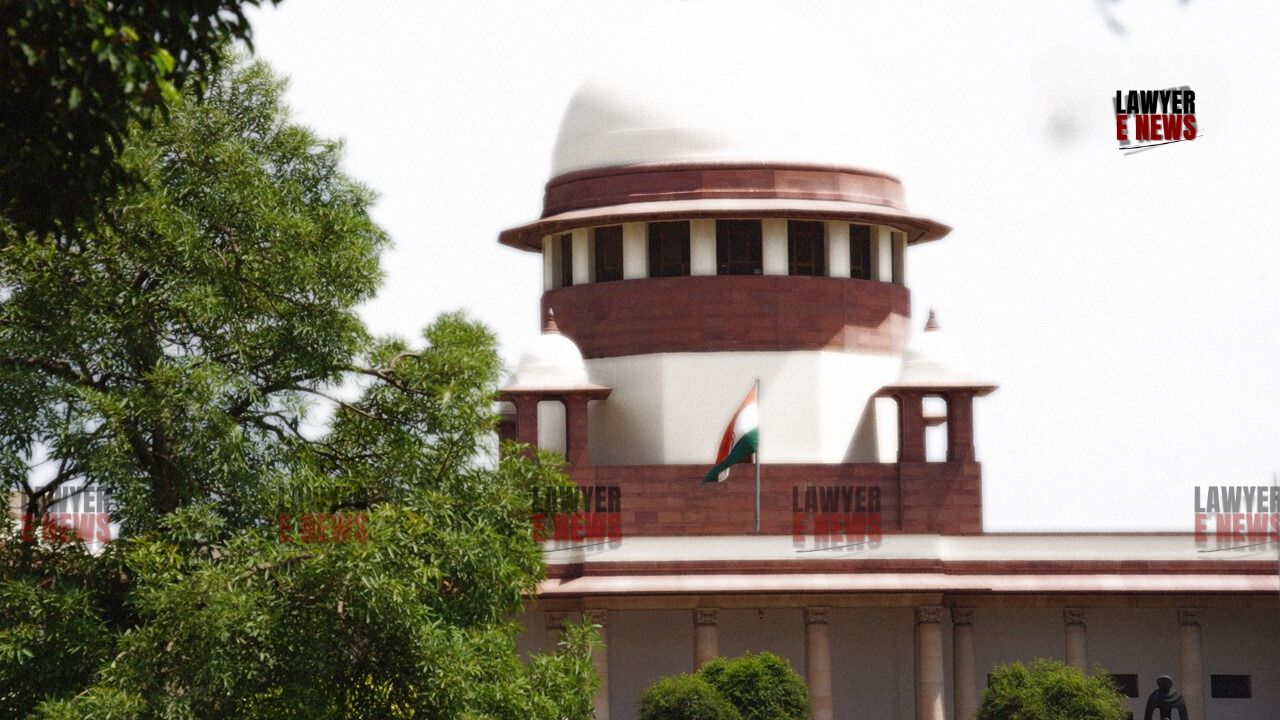-
by Admin
15 February 2026 5:35 AM



Supreme Court of India allowed an appeal and granted bail to two women convicted under Section 302 read with Section 34 of the Indian Penal Code (IPC). The appellants, Sita Yadav and Rajesh Kumari, were sentenced to life imprisonment for their involvement in the murder of Babu Lal during a land dispute. The Court, noting that no direct act of violence was attributed to the women, suspended their sentence, subject to conditions imposed by the Sessions Court.
The case originated from a longstanding land dispute between the family of the appellants and the informant. On April 28, 2020, a violent altercation occurred, during which the appellants were accused of holding down the victim, Babu Lal, while their co-accused, Hira Lal, delivered a fatal blow to his head with a tangi (an axe-like weapon). The appellants were convicted by the Second Additional Sessions Judge, Mauganj, Rewa, Madhya Pradesh, and sentenced to life imprisonment under Section 302 IPC for murder, along with a six-month rigorous imprisonment under Section 323/34 IPC for assault.
The appellants had previously sought suspension of their sentence and bail from the Madhya Pradesh High Court, which was rejected on October 19, 2023. The High Court had noted their conviction under Section 302 IPC and held that even though they did not directly deliver the fatal blow, their actions in assisting the co-accused justified the conviction.
The primary legal issue before the Supreme Court was whether the appellants, convicted under Section 302 IPC for their role in facilitating the murder, were entitled to bail and suspension of sentence during the pendency of their appeal.
No Overt Act by the Appellants: The appellants argued that they did not inflict any direct injury on the victim and only restrained him while the main accused, Hira Lal, struck the fatal blow. Their counsel emphasized that their role was distinguishable from the main accused, and thus, they should be granted bail.
"No overt act is attributed to the appellants herein and that the tangi blow was given by Hira Lal Yadav. Therefore, the appellants who are the two women... may be released on bail on suspension of their sentences." (Para 5)
Familial Responsibilities of the Women: The appellants also highlighted their familial responsibilities, including the fact that one of them had given birth while previously incarcerated. Their counsel urged the Court to consider these humanitarian aspects while deciding on bail.
"One of [the appellants] has a young child of about eight years old who was born in jail during the earlier incarceration." (Para 5)
State's Opposition: The State of Madhya Pradesh, through its Additional Advocate General, opposed the bail application, citing the seriousness of the crime. The State argued that even though the appellants did not directly deliver the fatal blow, their involvement in holding down the victim facilitated the murder, making them equally culpable under Section 34 IPC, which deals with common intention.
"[The appellants] facilitated Hira Lal Yadav to give the tangi blows on Babu Lal which resulted in his death and hence, the appellants are equally guilty." (Para 5)
The Supreme Court, after considering the facts and the role attributed to the appellants, found that their involvement in the crime was distinguishable from that of the main accused. The Court took into account their familial responsibilities and the fact that they were women with young children. It concluded that the appellants should be granted bail, subject to conditions to be imposed by the Sessions Court.
Suspension of Sentence and Bail Granted: The Court allowed the appeal and directed that the appellants' sentence be suspended. They were granted bail, provided they furnish bail bonds to the satisfaction of the Sessions Court. The Court emphasized that the appellants must cooperate with the legal process and appear in court as required.
"We accordingly direct that the appellants herein shall be produced before the concerned Sessions Court as early as possible and subject to the conditions to be imposed by the learned Sessions Judge the relief of bail and suspension of sentence shall be granted to them." (Para 6)
Conditions for Bail: The Court made it clear that the appellants are required to comply with any future directions of the High Court during the pendency of their appeal, including appearing in court when required.
"It is needless to observe that a direction may be issued against the appellants herein for securing them in the event the High Court as the Appellate Court requires their presence." (Para 6)
The Supreme Court’s decision granted bail to the two women convicted under Section 302 IPC, taking into account the limited nature of their involvement in the crime and their familial obligations. The Court suspended their sentence, subject to conditions set by the Sessions Court, and emphasized that the appellants must cooperate with the legal proceedings during the pendency of their appeal.
Date of Decision: October 14, 2024
Sita Yadav & Anr. vs. State of Madhya Pradesh
